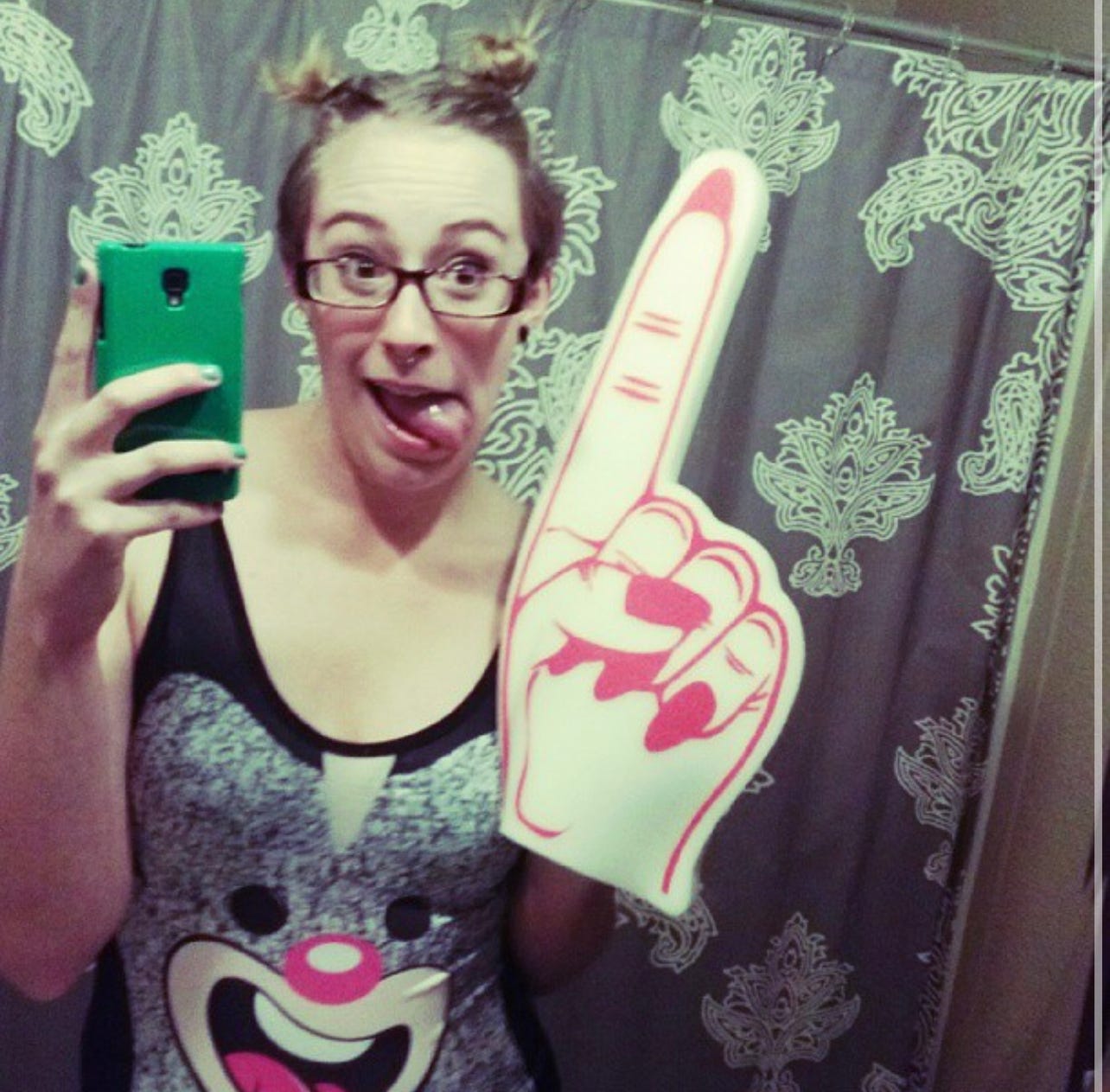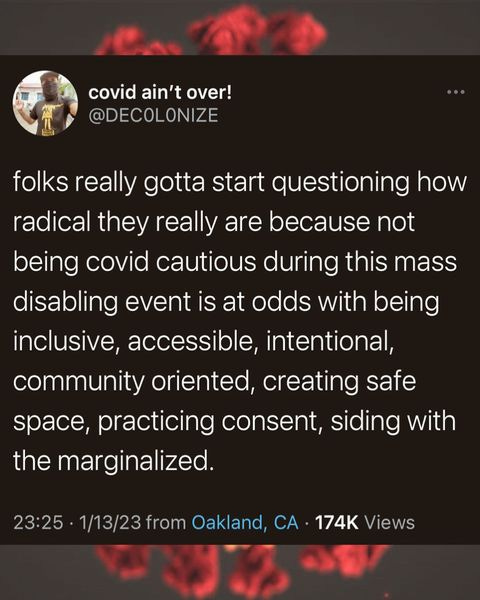Hi, sweet beans. Thanks for reading Healing Field Notes, a newsletter I send out twice a month. This newsletter will always be a free offering. However, consider a paid subscription if you’d like to support my writing.
I grew up a Disney kid. I’ve seen every episode of Hannah Montana, know every word to every High School Musical song, and truly believe Lindsay Lohan’s movie, ‘Get A Clue,’ is an elite piece of cinema.
Everything I know about my relationship to queerness now makes sense when I look at my television habits as a pre-teen into my teenage years. I was obsessed with ‘Confessions of a Teenage Drama Queen’ and thought the sexual tension between Lola and Carla was PALPABLE during the iconic Dance Slam scene, Cadet Kelly is a queer-coded movie (come on, she painted a rainbow on her hair!!!), and Cheetah Girls is bisexual canon. I will not be argued with.
My favorite read of 2022 was “Girls Can Kiss Now’ by Jill Gutowitz. In her essay, “One Day, You’ll All Be Gay,” Gutowitz talks about the relationship between Lindsay Lohan and Samantha Ronson in 2008. In 2008, I had just begun high school, and somewhere there is a photo of me on the first day of 9th grade, wearing a purple t-shirt with the MTV logo on it (a betrayal to my root of Brintey and Madonna kissing at the 2003 VMAs). I had also spent the last two years in and out of mental hospitals and was beginning to feel the ramifications of childhood abuse. I wasn’t paying attention to what was happening in pop culture – I wasn’t able to. I was on Lithium and had weekly family therapy, both of which ended up doing more harm than good.
Despite all of these things that I now understand as integral to my identity and upbringing as a queer person, I spent much of my twenties not caring about or thinking about pop culture. Gutowitz shares in her book that it makes sense that those of us who grew up in the early 2000s have such a strange relationship with queerness because of how it was portrayed and demonized. The closest thing I got to truly caring about pop culture was staying up late watching music videos on MTV and VHI after my parents went to bed.
Over the last couple of weeks, I’ve been dealing with ongoing comments and messages about people questioning my queerness after a video about my wedding went viral on TikTok. The video was truly just me showing people the quirky parts of my day. After a few hours up on the app, the comments section said things like why I used the word “partner” to describe my husband if I’m straight (not straight), that I seem like I want to be queer but am not (I am). It had people suggest that the defense of my identity when I clapped back at naysayers somehow negated my queerness altogether (I won’t let you tell me who I am or am not). A lot of assumptions were made.
My best friend, Nic, was the first one to introduce pop culture as something worth paying attention to. I began watching Real Housewives, started following magazines on Instagram and Twitter, and closely followed each Gaylor and Kaylor Taylor Swift conspiracies. Growing up, I was in survival mode. When watching TV or reading J14 and BOP, I was more concerned with decorating my room as a place I could stand in a house of harm and abuse. I was in chatrooms with men much too old for me instead of reading gossip blogs and crushing on Zac Efron. I soak it all in now.
I look back at my days watching Disney Channel and think about how Miley Cyrus, Raven Simone, and Lindsay Lohan have all come out as queer in some way or another. Homophobia in the 2000s was undeniable and pervasive in pop culture and media. I think about my own internalized homophobia and the girls I hated in elementary school. Did I hate them, or did I want to kiss them? I think about how my disdain for pop culture early on was likely rooted in internalized misogyny.
Pop culture is fun. It can be an avenue to deeper empathy for those we do not share identities with. It can also define and influence our perceptions in dangerous ways, and I would be remiss to mention how violently anti-Black and racist the 2000s were. The 2000s were gay, but really, they were homophobic. I could get into the nuances of how media and tabloids are toxic for celebrities. Still, I have to say I am unapologetically obsessed with how pop culture is a mirror we can all look into and have society reflected back at us. I am also grieving how pop culture and media continues to target queer people, even if it’s opinion pieces on major websites, such as The Guardian, that suggests we need to stop using “queer.”
It doesn’t surprise me that my favorite celebrities from when I was a teen have come out as gay. I look at all the pink I was surrounded by, and it’s no wonder I am falling in love with the color now as I heal my inner child. Unsurprisingly, I watch a lot of queer television and listen to bands like MUNA. I see Miley Cyrus and think about how I sang The Climb at a singing competition in middle school (I won second place, by the way) and, years later, dressed up as her from the foam finger era at the 2013 MTV Music Awards (I guess music award shows were influential for me) – the Disney Kid to Bisexuality Pipeline.
I am always curious about what the trajectory of my life would have been like had I been able to pay more attention to pop culture and media as a kid. I’ve written about ‘But I’m a Cheerleader’ before and think about how that movie would have changed me. Had I seen the 2009 Rolling Stones cover of Blake Lively and Leighton Meester, my brain chemistry would have been permanently altered when it came out during my sophomore year. Maybe I would have been less afraid of wanting to kiss girls. Pop culture and representation in media can be lifesaving.
There are so many nuances about how the 2000s impacted our relationships with our bodies, especially for women/femmes. I’m always thinking about how we see media's ramifications on celebrities (Britney Spears, Pamela Anderson, Miley Cyrus, Demi Lovato, and the list can go on) and the way diet culture, low-rise jeans, and Y2K fashion is fatphobic. I don’t look at pop culture through solely rose-colored glasses. But I do know that pop culture is what molded many of us, and know the moment I started paying attention to pop culture, I realized how gay I truly was. A blessing.
Pop culture can be an escape. Dreaming of a life like London Tipton was a welcome respite in a neglectful household. Partying as Miley Cyrus was a necessary distraction when I was my most suicidal. I love to watch the Real Housewives and, for a moment, gawk at the lives of Meredith Marks and Lisa Barlow when I crash against the waves of my intrusive thoughts. It can also be an escape into a life that we never had and may never have. My queerness is so intertwined into all of this because, no matter if people wanted to accept it or not, the aughts were fucking gay. And now I am too. I don’t think that’s a coincidence.
I just learned about Transforming911, a local community accountability and advocacy tool that uses data, research, and storytelling to examine St. Louis’ 911 system. They investigate the fundamental question of why St. Louisans call 911 and how that compares to the services police are actually able to provide. Find out more and take action here.
I’m donating to AORTA, an anti-oppression resource and training alliance comprised of facilitators, coaches & consultants strengthening movements for justice. Donate here and find their free resources here, including a guide to navigating conflict in movement organizations.
Elly Belle and I are launching a podcast! Come follow us on Instagram over at @feelingssouppod.
I have accepted an internship at the St. Louis Queer+ Support Helpline and am so excited. Some projects I’ll be working on are supporting SQSH's St. Louis Queer Mental Health Coalition client programming, leading research on queer-centered, anti-carceral mental health systems, facilitating newsletter & social media writing workshops, creating a framework for SQSH's social media response to crisis events, and designing a zine with stories from the LGBTQIA+ St. Louis community. Sign up for SQSH’s newsletter to keep up to date on our work.
The History and Cultural Significance of the “Queerleader” in Film and Television
My next episode is dropping NEXT WEEK! You can find last month’s episode of the Healing Field Notes podcast here. If you’d like to ask a question anonymously for an upcoming episode, you can fill out this Google Form.
If you have made it this far, THANK YOU. I’m so glad you are here. If you have enjoyed this newsletter and want to support me you can:
Share a snippet on social media & tell someone to subscribe
Forward this email to a friend you think would enjoy it
Venmo me a one-time donation at @samslupski (15% of donations will be redistributed to mutual aid funds and/or local grassroots organizations)
Hire me to write for you
Thanks for sticking around.
Love,














